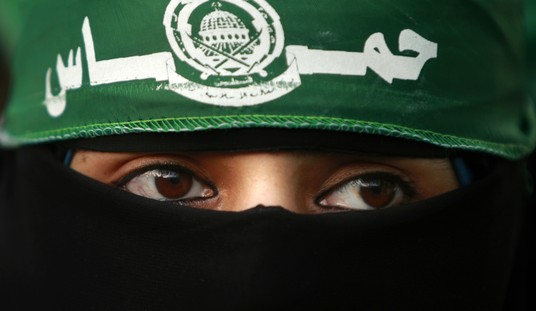As we mentioned on Saturday, leftwing artists of the 19th and 20th century invented the concept of “épater le bourgeois” — shocking the middle-class.
But that was before certain select segments of the target audience decided to paint their own targets on the backs of the artists — and in some cases, carried through on their threats.
In the New York Times (of all places), Ross Douthat does a tremendous job standing in the shadows of Mo-toons. He places the latest incident involving radical Islam versus South Park and the rest of the American legacy media into context, particularly in terms of how much freedom of speech has been lost since 9/11.
And in the U.S. at least, all via entirely self-inflicted wounds:
Two months before 9/11, Comedy Central aired an episode of “South Park” entitled “Super Best Friends,” in which the cartoon show’s foul-mouthed urchins sought assistance from an unusual team of superheroes. These particular superfriends were all religious figures: Jesus, Krishna, Buddha, Mormonism’s Joseph Smith, Taoism’s Lao-tse — and the Prophet Muhammad, depicted with a turban and a 5 o’clock shadow, and introduced as “the Muslim prophet with the powers of flame.”
That was a more permissive time. You can’t portray Muhammad on American television anymore, as South Park’s creators, Trey Parker and Matt Stone, discovered in 2006, when they tried to parody the Danish cartoon controversy — in which unflattering caricatures of the prophet prompted worldwide riots — by scripting another animated appearance for Muhammad. The episode aired, but the cameo itself was blacked out, replaced by an announcement that Comedy Central had refused to show an image of the prophet.
For Parker and Stone, the obvious next step was to make fun of the fact that you can’t broadcast an image of Muhammad. Two weeks ago, “South Park” brought back the “super best friends,” but this time Muhammad never showed his face. He “appeared” from inside a U-Haul trailer, and then from inside a mascot’s costume.
These gimmicks then prompted a writer for the New York-based Web site revolutionmuslim.com to predict that Parker and Stone would end up like Theo van Gogh, the Dutch filmmaker murdered in 2004 for his scathing critiques of Islam. The writer, an American convert to Islam named Abu Talhah Al-Amrikee, didn’t technically threaten to kill them himself. His post, and the accompanying photo of van Gogh’s corpse, was just “a warning … of what will likely happen to them.”
This passive-aggressive death threat provoked a swift response from Comedy Central. In last week’s follow-up episode, the prophet’s non-appearance appearances were censored, and every single reference to Muhammad was bleeped out. The historical record was quickly scrubbed as well: The original “Super Best Friends” episode is no longer available on the Internet.
As Douthat concludes, “This is what decadence looks like: a frantic coarseness that ‘bravely’ trashes its own values and traditions, and then knuckles under swiftly to totalitarianism and brute force.”
Definitely read the whole thing.









Join the conversation as a VIP Member